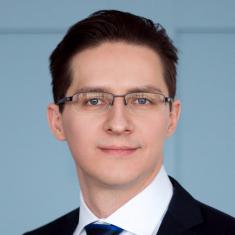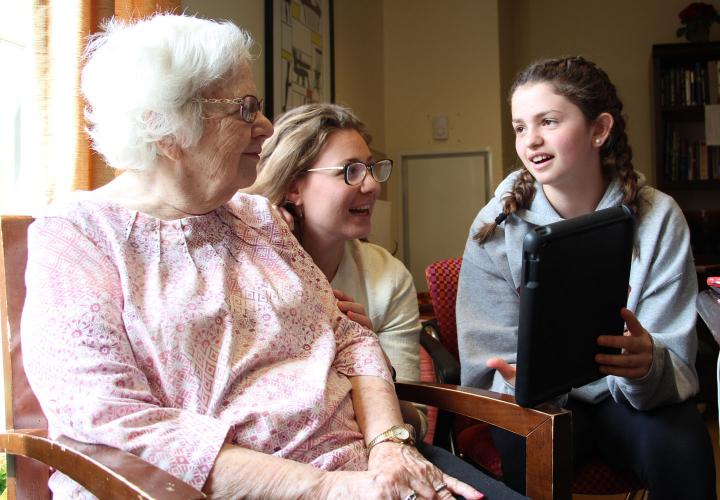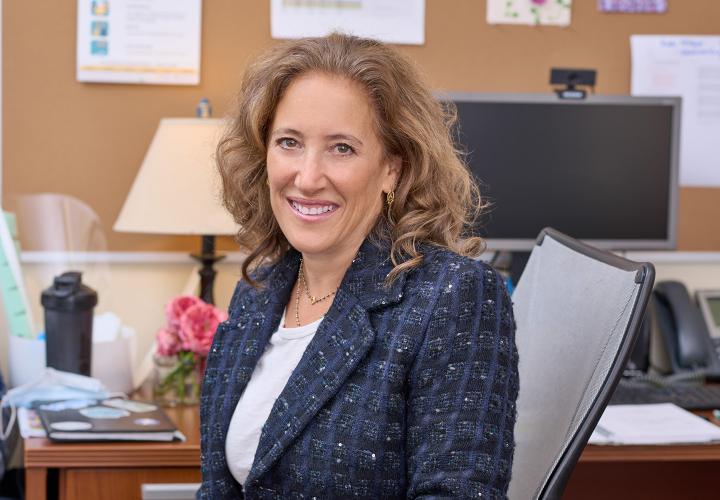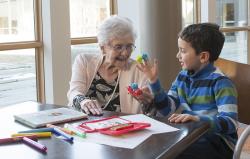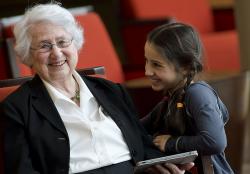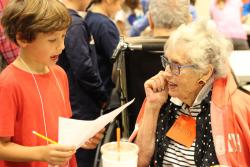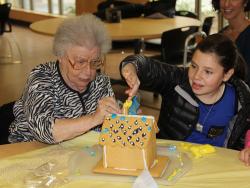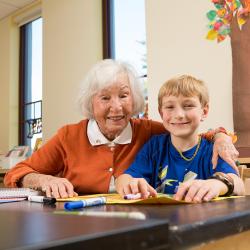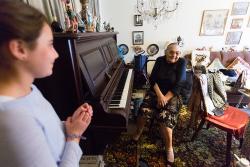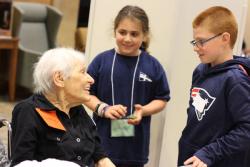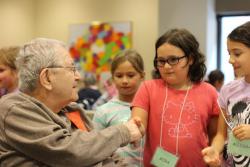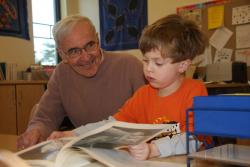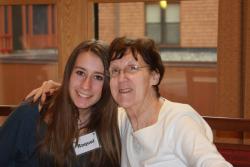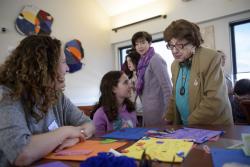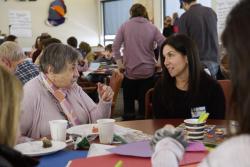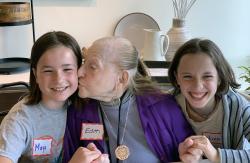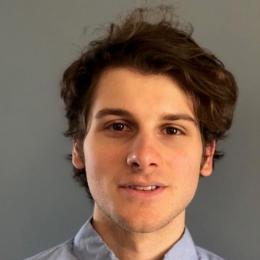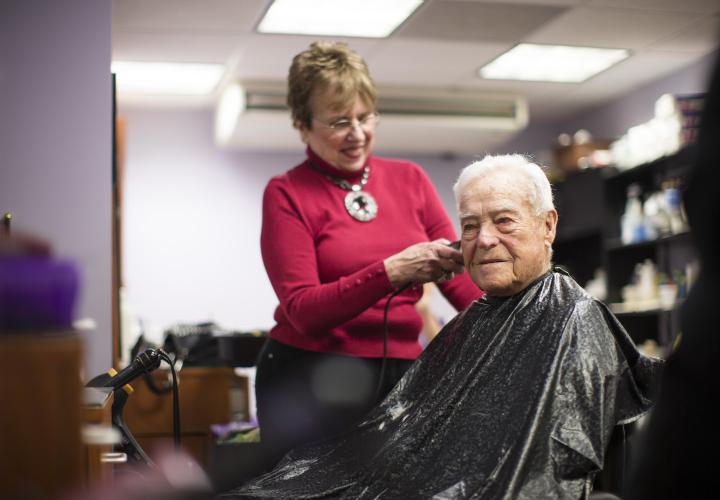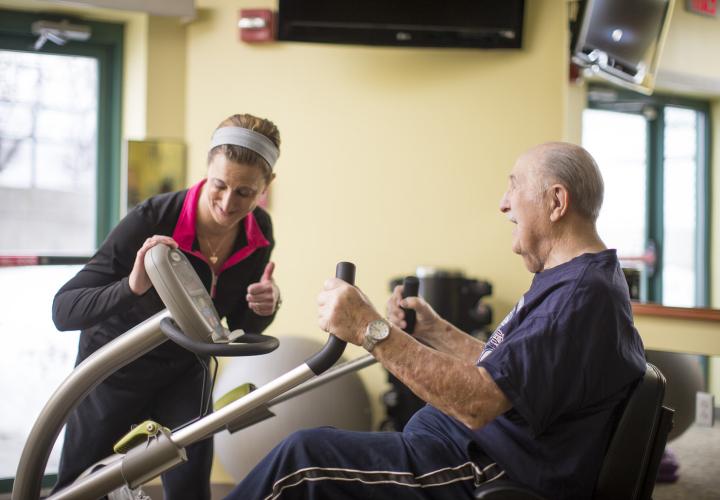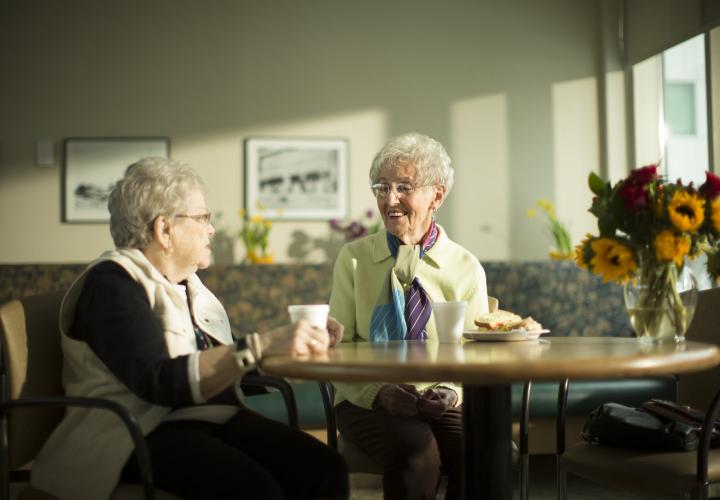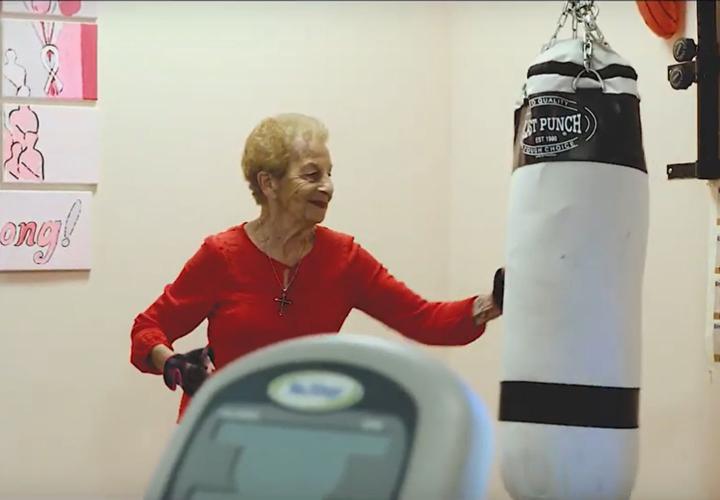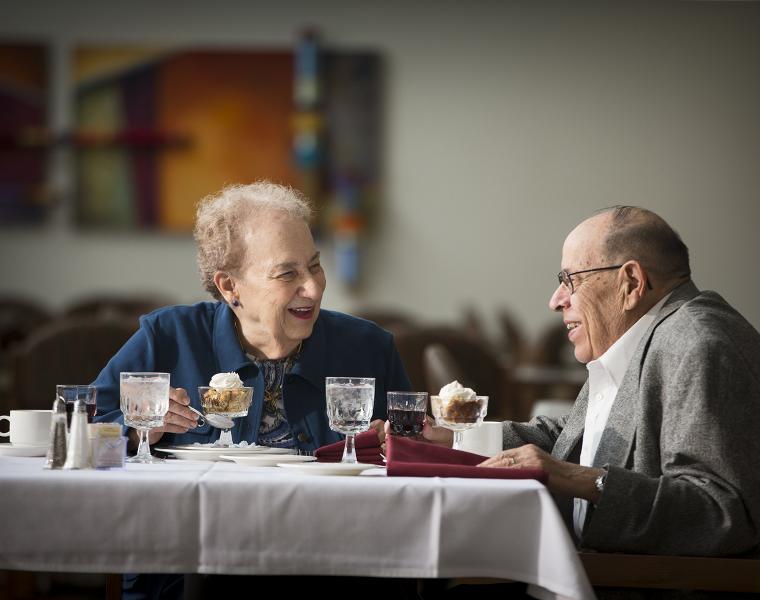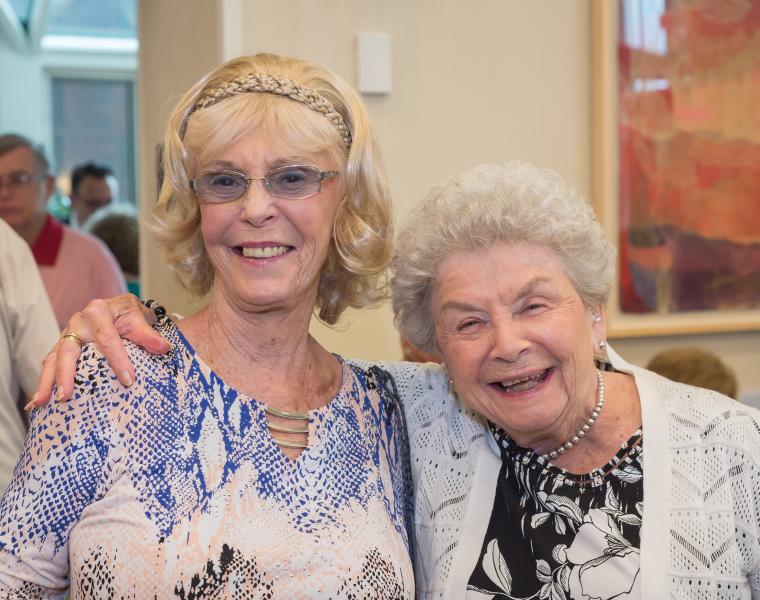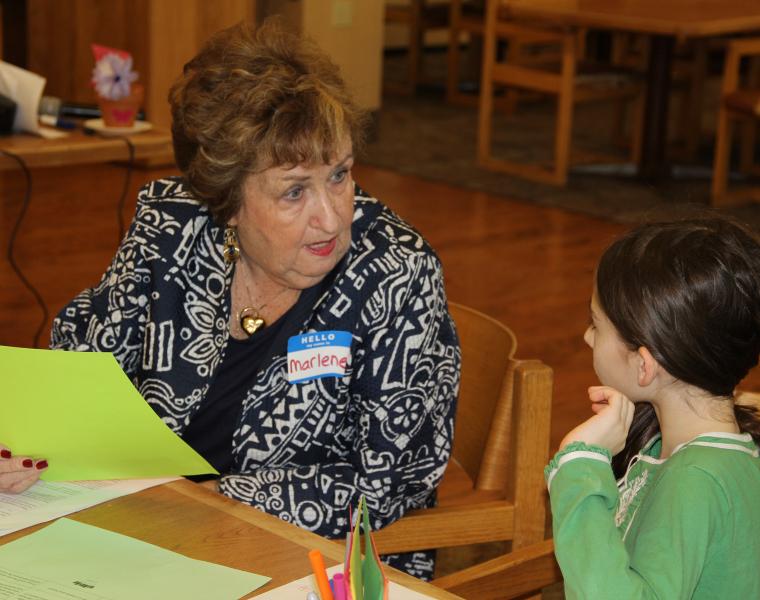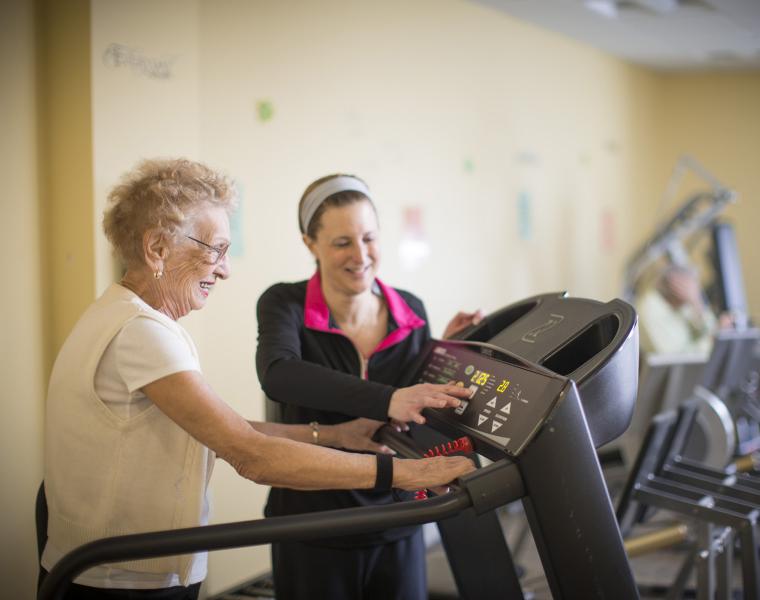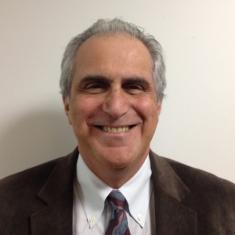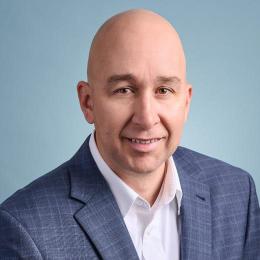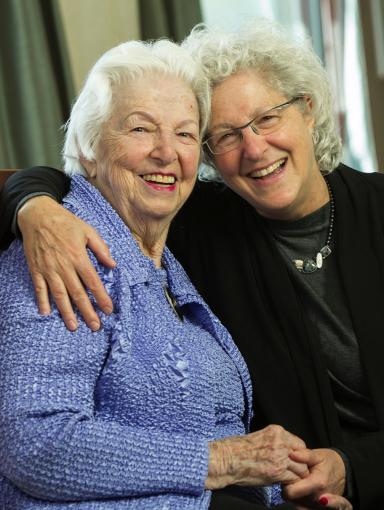Innovation happens throughout Hebrew SeniorLife. Whether we're making discoveries, developing new teaching methods, or finding unique ways to connect seniors to the community, Hebrew SeniorLife continuously works to improve the quality of life for older adults, to support families, and to expand professional development opportunities for health care professionals.
Here are some of the many ways Hebrew SeniorLife is changing the future of health care for seniors.
Our Research: Marcus Institute
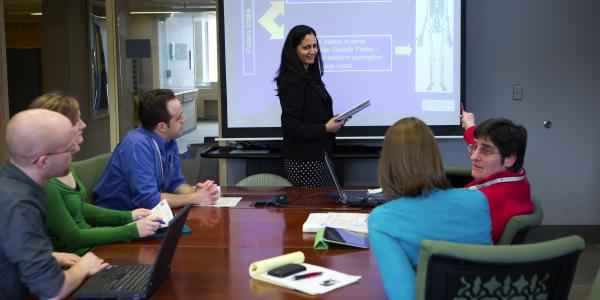
Hebrew SeniorLife is home to the Hinda and Arthur Marcus Institute for Aging Research, a renowned center for discovery and collaboration affiliated with Harvard Medical School.
Initiatives at the Marcus Institute include:
- The Aging Brain Center
- Biostatistics & Clinical Trials
- Musculoskeletal Research Center
- Palliative Care
- Mobility and Falls
Wolk Center for Memory Health
One place. One focus. Our team of memory disorder experts - health care professionals, service providers, and support staff - provides a range of customized care options to people living with Alzheimer’s and dementia in Greater Boston. The Deanna and Sidney Wolk Center for Memory Health also provides guidance, comfort, and support to family members and loved ones during this often-confusing and emotional time.
More About the Wolk Center for Memory Health
Academic Programs
Each year, we provide education programs to train more than 1,000 future doctors, nurses, physical therapists, pharmacists, and other providers. Hebrew SeniorLife is the only senior care organization affiliated with Harvard Medical School, and we have academic affiliations with 45 additional training partners in Massachusetts and New Hampshire.
Two of our signature programs are:
- The Harvard Medical School Multi-Campus Fellowship in Geriatric Medicine, which is one of the oldest geriatric fellowship programs in the country. It trains doctors to become geriatric specialists and leaders in health care and research.
- Clinical Pastoral Education, which trains interfaith health care chaplains. It is the only ACPE-accredited Jewish geriatric clinical pastoral education program in the country.
Vitalize 360 Wellness Coaching
Vitalize 360 is an evidence-based one-on-one wellness coaching model for seniors based not on “what’s the matter” but on “what matters most” to you. It promotes healthy aging in all aspects of life: health, physical and mental fitness, lifelong learning, community connection, and spirituality. Vitalize 360 helps seniors find purpose and meaning as they age. It’s a part of life in all our independent living communities, and has now expanded to 20 locations beyond Hebrew SeniorLife.
Preliminary evidence from Hebrew Senior Life's Orchard Cove community, where Vitalize 360 started, found statistically significant improvements in mood, loneliness, social interaction, perception of health status, and self-reported quality of life of residents, as compared to a matched, control group.
The R3 Initiative: Right Care, Right Place, Right Time
Affordability. Accessibility. Availability. Often, cost and other obstacles deter seniors from seeking routine and even urgent care. In 2016, Hebrew SeniorLife launched an innovative program that integrates wellness teams into subsidized housing communities in order to help residents proactively manage their health and to effectively link housing and health care. The goal: improve lives, reduce costs, and help people stay independent - and at home - longer.
An evaluation of the demonstration project showed that the initiative resulted in reduced hospitalizations, readmissions, and trips to the emergency room, plus high participant satisfaction. Now, in addition to continuing R3 at our supportive living communities, we are focused on helping other senior housing communities implement R3 so more older adults can benefit from the proactive approach. The R3 Initiative was the winner of the Pioneer Institute’s Better Government Award in 2017 and The John A. Hartford Foundation's 2021 Business Innovation Award.
Learn About Housing and Care Integration
Elder Abuse Prevention
Each year, millions of older Americans are abused, neglected, and exploited. Hebrew SeniorLife is dedicated to combating the incidence of elder abuse in Massachusetts through its Center for the Prevention of Elder Abuse and Neglect.
Our center is focused on shelter and services for affected seniors, and increasing awareness and reporting of elder abuse incidents. We are the first shelter program in Massachusetts exclusively for victims of elder abuse. The center currently provides physical shelter, if needed, as well as essential support services – such as legal, financial, medical, and counseling. The center also provides education about how to identify signs of abuse and engages in advocacy for victims’ rights.
If you feel that you or someone you know may be a victim of elder abuse, please call the 24-hour, toll free elder abuse hotline at the Massachusetts Executive Office of Elder Affairs at 800-922-2275. If you wish to partner with Hebrew SeniorLife to raise awareness and/or arrange training on this important issue, please contact 617-971-5219.
Learn About Our Shelter Resources
Bringing Together Generations
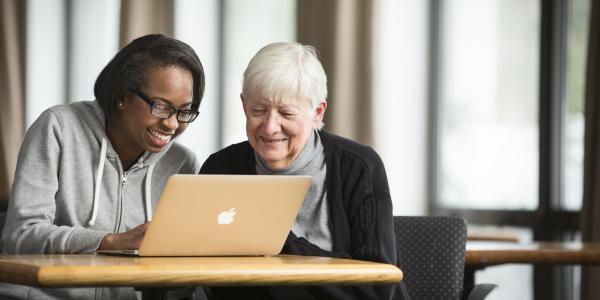
Seniors and students come together as part of the Adam and Matan Adelson Multigenerational Program at Hebrew SeniorLife. Through meaningful interactions, our residents find companionship and a sense of purpose, while children and young adults learn the value of service and develop an appreciation for the rich life experiences of seniors.
Here are a few ways this intergenerational program enriches lives:
- Elementary and middle school students from the neighboring Rashi School visit one-on-one with NewBridge on the Charles residents.
- Preschool students visit Hebrew Rehabilitation Center to participate in music, reading, and art with older adults.
- High school students shop for and visit with seniors in Center Communities of Brookline.
- College nursing students visit the Simon C. Fireman Community to learn about geriatric nursing firsthand from older adults.
The program received the Generations United Program of Distinction Award in 2017.
See Intergenerational Programs
LGBTQ Seniors Initiative
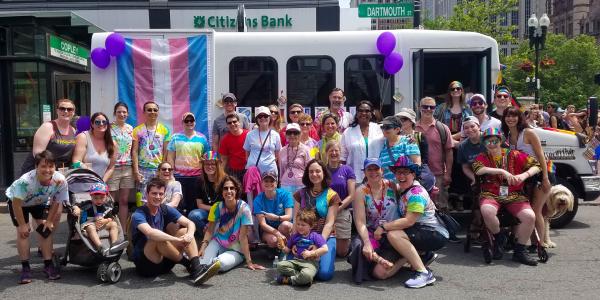
LGBTQ seniors under our care or living in our communities should feel comfortable expressing who they are. To ensure all of our patients and residents feel respected and accepted, we’re working to create an inclusive environment through staff and community trainings, along with events and activities that promote conversation. The initiative is also helping seniors in our communities feel at ease and open about the LGBTQ children, grandchildren, and friends in their lives; and it’s creating a more open and welcoming environment for LGBTQ employees as well.
We’ve trained staff across the entire organization, including more than 450 direct care staff at Hebrew Rehabilitation Center. Our chaplain education program offers a one-of-a-kind Spiritual Care of LGBTQ Seniors unit, and we collaborate with LGBTQ community groups. We also provide training to other senior services organizations to help them create welcoming communities.
As a result of our efforts, Hebrew SeniorLife received the 2019 Lavender Rhino Award from the History Project. The LGBTQ initiative is supported by grants from the E. Rhodes and Leona B. Carpenter Fund and the Centre for Aging and Brain Health Initiative.
